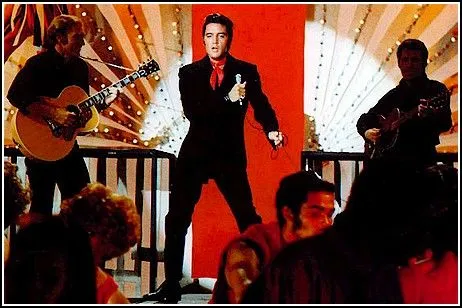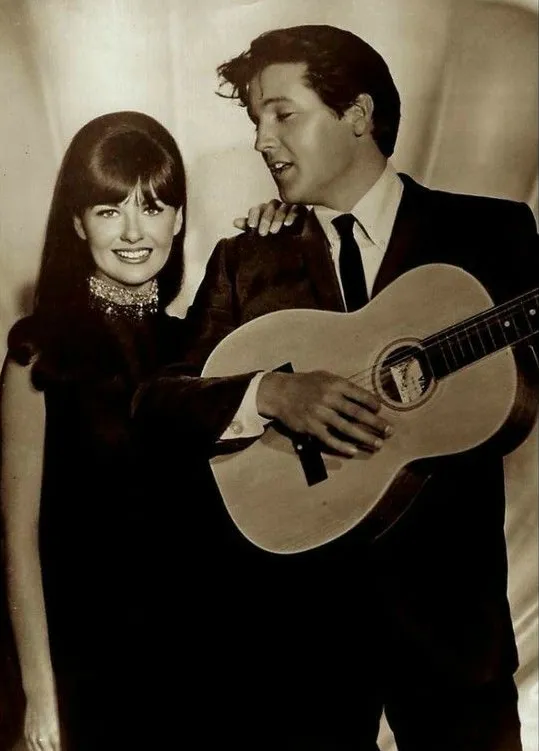About the song
(Watch the video below)
In the annals of Elvis Presley's illustrious career, "G.I. Blues" stands as a vibrant testament to his versatility as an artist, showcasing his talents not only as a singer but also as an actor and entertainer. Released in 1960 as both a soundtrack album and a feature film, "G.I. Blues" marked a pivotal moment in Presley's career, cementing his status as a cultural icon and demonstrating his ability to captivate audiences with his charm, charisma, and undeniable musical talent.
Set against the backdrop of post-World War II Germany, "G.I. Blues" follows the adventures of Tulsa McLean, a fun-loving soldier stationed overseas who dreams of opening a nightclub when he returns home. As Tulsa navigates the challenges of military life and navigates a whirlwind romance with a beautiful local girl named Lili, played by Juliet Prowse, he discovers that love and laughter can be found in the most unexpected places.
At its core, "G.I. Blues" is a lighthearted romp through the trials and tribulations of army life, infused with Presley's trademark blend of charm, humor, and infectious energy. The soundtrack album features a mix of upbeat rock and roll numbers, heartfelt ballads, and playful novelty songs, showcasing Presley's remarkable range as a vocalist and his ability to breathe life into any genre he tackles.

One of the most memorable tracks from the album is the titular song "G.I. Blues," which serves as a rollicking ode to the camaraderie and camaraderie shared among soldiers stationed overseas. With its catchy melody, spirited vocals, and infectious rhythm, the song captures the sense of adventure and excitement that accompanies life in the military, inviting listeners to join in the fun and revelry of army life.
Another standout track from the album is "Blue Suede Shoes," a rockabilly classic originally written and recorded by Carl Perkins. Presley's electrifying rendition of the song, infused with his trademark swagger and charisma, solidified his reputation as the King of Rock and Roll and helped propel "G.I. Blues" to the top of the charts, where it remained for over ten weeks.
But perhaps the most enduring legacy of "G.I. Blues" lies in its portrayal of love and romance in the midst of adversity. Songs like "Pocketful of Rainbows" and "Wooden Heart" capture the tender emotions and bittersweet longing that accompany long-distance relationships, while playful numbers like "Didja' Ever" and "Shoppin' Around" showcase Presley's comedic timing and infectious charm.

Moreover, "G.I. Blues" serves as a testament to Presley's versatility as an entertainer, showcasing his talents not only as a singer but also as an actor and performer. The film's success at the box office solidified Presley's status as a bona fide movie star, paving the way for a string of successful film roles in the years to come.
In many ways, "G.I. Blues" encapsulates the spirit of the early 1960s, a time of optimism, prosperity, and cultural change. With its infectious energy, memorable songs, and irresistible charm, the album captured the hearts of audiences around the world and solidified Presley's reputation as a beloved entertainer and cultural icon.
As we continue to revisit Elvis Presley's legendary career, albums like "G.I. Blues" serve as a reminder of his enduring impact on popular culture and his ability to captivate audiences with his charm, charisma, and undeniable musical talent. With its infectious energy, memorable songs, and timeless appeal, "G.I. Blues" remains a cherished classic that continues to entertain and inspire listeners of all ages, inviting them to join in the fun and excitement of Presley's musical odyssey through love, laughter, and the lure of distant lands.



